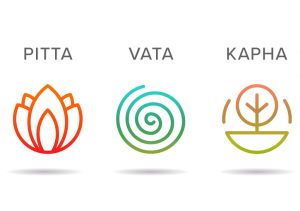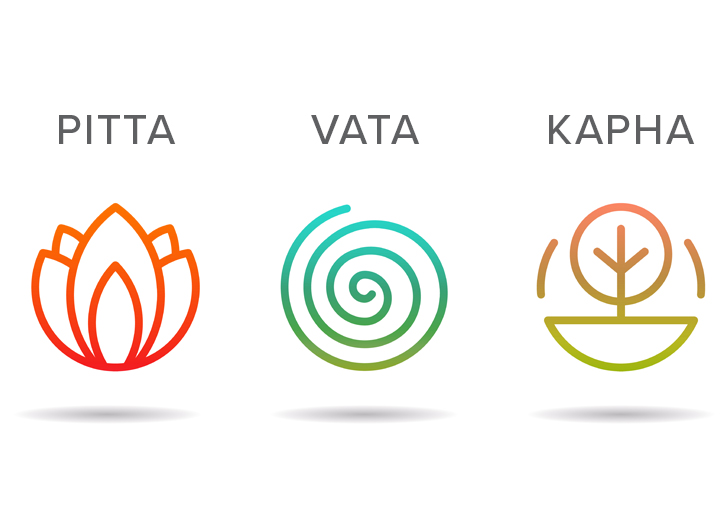 Dear Ask Ayurveda,
Dear Ask Ayurveda,
I am a Pitta-Vata individual, although I seem to be dealing with all three doshas out of balance at the moment. With the transition into fall each year I struggle with severe constipation. I believe my Vata becomes increased, which then increases Pitta both in the mind (which leaves me angry and irritated) and in the colon (which dries it out and leads to constipation). My first thought is to try to cool down my Pitta, but this ends up increasing my Kapha and causing a slow digestion, slow metabolism, and weight gain in my lower body. So as you can imagine I am both frustrated and confused! How can you treat Vata, Pitta, and Kapha at the same time without creating more imbalances? Tridoshic Dilemma
Hi Tridoshic Dilemma,
Thank you so much for taking the time to write out this question. Not surprisingly I get similar questions quite often, so I am excited to address this issue on a larger scale. Ayurveda can indeed become very complex at times, especially when there are multiple imbalances, each stemming from a different dosha. Since each dosha possess different qualities, treatments that will help one, can just as easily provoke the other. As I can see, you have already discovered this loud and clear.
When you are dealing with multiple doshic imbalances, the first line of action will be to break the symptoms down, which I see you have already begun. There seems to be high Pitta in the mind (anger, irritation), Vata in the colon (dry colon, constipation), and Kapha in the digestion (slow metabolism, weight gain). By just examining this, we can already eliminate some of the confusion and sense of overwhelm!
Now that we have a pretty clear picture of what is going on in your system, let’s walk through together and discover how we can establish balance for each of these issues. If you are reading from home and dealing with your own personal “tridoshic dilemma”, then take a moment to break down your own personal symptoms and mark the dosha(s) involved for each. Then follow the steps below.
How To Treat Vata, Pitta, And Kapha At The Same Time
1. Treat the main dosha at fault.
Whenever you have more than one doshic imbalance, it is likely that there is one dosha that is most out of whack, or one that is increased to the point that it is actually causing the other dosha(s) to increase as well. This is not always going to be the case, but when it is, this main dosha should be the main focus of treatment in order to subsequently pacify the others.
From what you have told me, it looks like Vata is the instigator behind the constipation and even the high Pitta in the mind. As you stated, the Vata simply becomes so high that it then overflows and begins to disrupt the other dosha(s). In your case this is mainly Vata pushing Pitta. When you have one dosha pushing (or sometimes blocking) another, the line of action is almost always to treat the one originally at fault. Therefore you will want to focus your main treatment on calming Vata dosha. However, while deciding on a Vata-reducing line of treatment, the following recommendations must also be applied.
2. Always keep in mind the season.
With any dual or tridoshic imbalance, it is extremely important to keep in mind the season. In fact, this is essential even when treating a single doshic imbalance. For example, if you have high Kapha in the middle of the hot summer, you should not treat it with heating foods and herbs, but rather cooling, bitter, and astringent substances that will reduce the Kapha without creating excessive heat and increasing Pitta.
This same thought process is true for your current condition. Although many doshas are at play, it is currently Vata season (fall) and therefore you must focus on a Vata-reducing regimen. But as I mentioned above, only do this while simultaneously following the other recommendations mentioned.
3. Treat the main dosha without provoking the other two doshas.
So here is where we get even more complex. Since we will be mainly treating Vata, we must make sure we do so without increasing the other doshas. This can be done by simply applying Vata-reducing methods that are either neutral or balancing for the other doshas. If you are now scratching your head, let me use some examples to shed some light.
A great place to begin for treating constipation is to adopt a Vata-reducing diet. In order to eat in line with Vata (which typically requires heavy, oily, and warming foods) without increasing Kapha (which is provoked by the heavy and oily qualities), or Pitta (which is provoked by the heating quality), try to keep these factors in mind:
- Focus on warm mushy, well cooked meals such as kitchari, dal, soups, porridges, etc
- Avoid all raw, cold, and rough foods
- Aim for foods that are grounding but not too heavy (i.e. broth based soups rather than cream based; lighter whole grains such as quinoa or buckwheat rather than heavier grains such as wheat, white rice, and oats; almond milk over dairy milk)
- Use lots of Vata-reducing digestive spices that are not too heating such as fresh ginger, turmeric, fennel, coriander, cumin, and cardamom
- Oil your meals moderately using a Kapha-friendly oil such as ghee, sesame oil, or sunflower oil
- Eat mainly home cooked meals and avoid processed foods, preservatives, and additives
- Avoid leftovers, especially over 1 day old
With these factors in mind, you can see that we can focus on the main Vata-reducing food rules without increasing the other doshas in the process. These food rules listed should begin to alleviate the constipation without being too heavy for your Kapha or too heating for your Pitta.
4. Treat each imbalance locally.
If you are applying the recommendations in number 3, but are still finding yourself angry and irritated in the mind and heavy and weighed down in the digestion, we must elaborate further and get even more detailed. By breaking down where the imbalance lies and then which dosha is provoking this imbalance, we can treat the issue locally without causing disruption throughout the rest of the system.
For your case, with the Pitta being high in the mind, we can calm this dosha locally with a few various methods. Anger and irritation often have a root with high stress (which can also be caused by high Pitta) and therefore soothing, de-stressing activities can often reduce the high Pitta in the mind. Simple techniques such as mediation, gentle Yoga, or deep breathing practices are all great places to begin. Nasya is a way to work directly on the mind and nasya formulas such as Prana Nasya will be a great option when working with any emotional imbalance including excessive anger and irritation. Finally, massaging the scalp, forehead, and neck with a neutral oil (not too heating or cooling) before bed each night will also calm the mind and reduce the anger. I recommend to use the Tridoshic Massage Oil, which not only is great for balancing all three doshas, but also contains vetiver, an herbal essential when it comes to treating Pitta in the mind.
If you are dealing with high Kapha that has resulted in a slow, sluggish digestion and weight gain, we must once again treat the Kapha locally in the GI tract, without using too much heat or drying methods (which would provoke Pitta and Vata respectively). Some great places to begin would be to drink CCF tea between meals; take the ginger, lime, and honey digestive appetizer before meals; take a 15 to 30 minute walk after meals (at least once daily); avoid all day-time napping; and avoid eating after 6pm each night. This will lighten your Kapha without aggravating Vata or Pitta.
5. When all else fails, think tridoshic – diet, herbs, and lifestyle -practices.
This recommendation is a fool proof option, especially if you are not clear where the doshic imbalances are located, which dosha is causing what symptom, or which dosha is the main dosha at fault. Therefore using treatments that will balance all three doshas is essential when dealing with more complex situations involving multiple doshas. Here are some great tridoshic foods and herbs that will simultaneously calm the Vata in your colon, Pitta in your mind, or Kapha in your digestion, without creating further disruption or imbalance.
Tridoshic Herbal Treatments
- Triphala Churna: A powdered formula that treats all three doshas, and is specific for alleviating constipation.
- Triphala Ghrita: A medicated ghee that is tridoshic, cleansing, and rejuvenating; useful for improving digestion and elimination.
- Detox Tea: A detoxifying tea that is very effective for boosting the digestive fire (agni), yet gentle enough for daily use; balancing for all doshas.
- Om Shanti Tea: A cooling and calming tea for emotional imbalances including anger, irritation, and frustration.
- Agni Churna: A spice blend that is intended for all body types and imbalances. It can be added to any savory meal to aid in digestion and reduce heaviness in the GI tract.
- Prana Nasya: A nasal oil for calming emotional imbalances and balancing all doshas in the mind.
Tridoshic Recipes
- Tridoshic Mung Dal and Quinoa Kitchari
- Tridoshic Red Lentil Dal
- Tridoshic Quinoa and Veggie Stir-Fry
- Classic Cleansing Kitchari
- Simply Steamed Veggies
- Curried Coconut and Veggie Soup
- Golden Energy Buckwheat Breakfast
- Simply Spiced Quinoa Porridge
- Healing Ayurvedic Bone Broth
- Quick and Easy Homemade Ghee
Tridoshic Lifestyle Practices
- Meditation
- Deep breathing practice or nadi shodhana (alternate nostril breathing)
- Gentle to mild Yoga practice
- Walking daily
- Gentle cardio, at least 3 times weekly
- Oil massage with the Tridoshic Massage Oil
- Avoid food late at night, ideally after 6 to 7pm
- Wake up before the sunrise
- Go to bed before 10pm
Conclusion
Well tridoshic dilemma, I hope these recommendations can help to clarify your current healthcare concerns and shed some light on a path for healing. If you have read everything thoroughly and are still feeling overwhelmed or confused, this is very understandable. As I already stated (and you already know) dealing with all three doshas elevated at the same time can be very complex. In your situation, I would recommend to begin some of the tridoshic recommendations and recipes I have listed above while seeking out an Ayurvedic practitioner to help guide you on this journey. They can give you more personalized treatment and will be there when the questions arise. Best of all, working one on one with a practitioner will help to educate you so that you can prevent your recurring fall season constipation, irritation, and weight gain, from occurring in the future.
I wish you the best of luck on this path of healing and Ayurveda. If you have any further questions, please contact me anytime and I will be happy to help!
Namaste,
Ask Ayurveda



Namaste Danielle Mataji,
What if the khichdi which is cooked at 6 in the morning is eaten at 10 in the morning will it affect the digestion. As I have to carry two tiffins for work, one for morning and other at 5 pm. Please clarify.
Hi Madhavi,
Thank you for your question! Eating one large pot of food throughout the day will not have a negative effect on digestion. This is not considered “leftovers” and this food will still be full of nutrients and Prana.
Leftovers become stale, old, and hard to digest once they have been refrigerated and reheated. However, eating leftovers like this may be necessary for many individuals’ busy schedules. Eating healthy, homemade leftovers (ideally only 1-2 days old) is still more nutritious than eating processed and pre-packaged foods.
If you are able to make fresh meals daily, however, this is always best. This would include making a large batch of kitchari/dal/soup/etc and eating it throughout the same day.
Let me know if you have any further questions and I will be happy to help!
Be well:)
Namaste,
Danielle
Namaste Daneille Mataji,
Thank you for your precious time for replying. I am very confused for regarding my Dosha. I had given dosha test wherein i received two emails one stating i am Pitta-Vata and other stating i am Pitta-Kapha. Please help me in this.